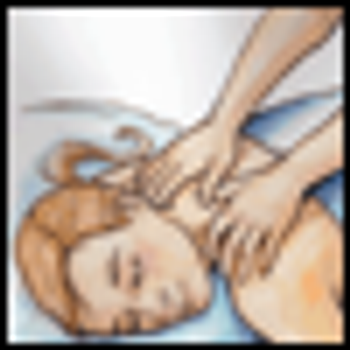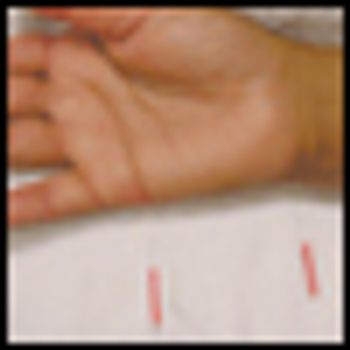
Potential candidates for accelerated partial breast irradiation (APBI) may benefit from pretreatment MRI to ensure no cancer is missed, according to a study conducted by a multidisciplinary group of researchers.

Your AI-Trained Oncology Knowledge Connection!


Potential candidates for accelerated partial breast irradiation (APBI) may benefit from pretreatment MRI to ensure no cancer is missed, according to a study conducted by a multidisciplinary group of researchers.

In this issue of ONCOLOGY, Balducci[1] reviews principles for treating elderly patients with antineoplastic therapy. This paper begins by defining baseline terminology such as age and frailty, while providing an overview of applied techniques of discerning a patient’s functional impairment or disability.

The US Food and Drug Administration has approved Labopharms once-daily extended-release formulation of the analgesic tramadol (Ryzolt) for the management of moderate to moderately severe chronic pain in adults who require around-the-clock long-term treatment of pain.

Amgen Inc announced submission of a Biologics License Application (BLA) with the US Food and Drug Administration (FDA) for denosumab, an investigational RANK ligand inhibitor.

Massage is an ancient technique that involves manual manipulation of muscles and soft tissues of the body. It increases circulation and promotes relaxation. Massage offers important emotional and psychological benefits as well.

Lung cancer is the leading cause of cancer-related mortality. Improved understanding in the molecular biology and genetics of lung cancer has resulted in the identification of individual genes, gene expression profiles, and molecular pathways that may be useful for clinical management decisions.

Thalomide may not be the best partner for bortezomib (Velcade) in combination therapy for elderly multiple myeloma patients. Based on the results of a phase III clinical trial, bortezomib, prednisone, and thalidomide achieved equivalent outcomes when compared with a similar combination therapy using melphalan, but led to more serious adverse events, particularly thromboembolic complications.

Dexamethasone in the induction phase of chemotherapy led to a one-third reduction in the risk of relapse, compared with standard treatment, in pediatric acute lymphoblastic leukemia, according to results of an international trial, which were presented this week at the American Society of Hematology meeting in San Francisco.

CHICAGO-When Roland Talanow, MD, PhD, began his radiology residency, the topic of cancer staging proved to be particularly confounding. In an effort to educate himself and help others, Dr. Talanow has built a free, Web-based database that offers one-stop shopping on cancer staging, including comprehensive information on lymphoma, non-Hodgkin’s lymphoma, and HIV-related lymphoma. Dr. Talanow showcased his Web site, www.cancerstaging.info, at RSNA 2008 (abstract LLR03001-H).

Dutch researchers have found an association between anaplastic large T-cell lymphoma and silicone breast implants.

CHICAGO-The combination of cyclophosphamide, bortezomib, and dexamethasone is associated with high rates of response and manageable toxicity among patients with newly diagnosed multiple myeloma, according to results from a single-arm phase II trial.

One hundred years after Oberndorfer coined the word “carcinoid,” neuroendocrine tumors (NETs) are thought to be rare tumors characterized by the capacity for hormone production and often an indolent course. Recent data from population-based registries have shown a significant rise in the diagnosed incidence of NETs over the past 3 decades.

Metastatic well or moderately differentiated neuroendocrine tumors of the gastrointestinal tract and lung (NETs) are a fascinating and markedly heterogeneous group of generally indolent, but relentless cancers.

As a preschooler, Clara D. Bloomfield, MD, had visions of Florence Nightingale in her head. At the age of four, she informed her mother that she wanted to become a nurse. “My mother said, ‘Well dear, that’s very nice. But if you want to become a nurse, you might as well become a doctor’,” Dr. Bloomfield told Oncology News International.

In 1993, Laura Esserman, MD, took a trip to the UK and noted that breast cancer diagnosis was handled far diff erently than in the U.S. Because all the breast cancer imaging is done centrally in the UK, physicians offer same-day clinics.

A new study found that recent progress in closing the gap in overall cancer mortality between African Americans and whites may be due primarily to smoking related cancers, and that cancer mortality differences related to screening and treatment may still be increasing. The study is the first to analyze racial and ethnic differences between the two broad categories of disease.

Sancuso (granisetron transdermal system) is now available by prescription in the U.S. for patients with chemotherapyinduced nausea and vomiting. The patch continuously releases granisetron into the bloodstream for up to five consecutive days.

Ohio State University’s Comprehensive Cancer Center-James Cancer Hospital and Solove Research Institute have developed a free, online assessment tool that allows individuals to enter their family medical history, and determine their risk for both cancer and coronary heart disease.

GENEVA-Antiangiogenesis agent bevacizumab (Avastin) combined with the radioactive tracer Copper-64 may be an effective method for imaging tumors, according to research presented at EORTC-NCI-AACR 2008.

There is growing agreement with Dr. Falcone-based on limited data-that response rates appear to be increased with FOLFOX plus cetuximab, as compared with FOLFOX alone, for KRAS wild-type patients only, according to Jordan Berlin, MD, associate professor of medicine and clinical director of GI oncology at Vanderbilt University in Nashville.

Washington state voters passed an initiative that allows doctors to prescribe lethal prescriptions to terminally ill patients who have six months or less to live.


Piver gives his perspective on the management of epithelial ovarian cancer in the elderly. This subject has been dealt with previously by numerous authors, with a general consensus that advancing age is an independent negative prognostic factor when multivariate statistics are applied to the multiple parameters affecting outcome

Dr. Piver presents a personal look at the issues he believes to be important in managing ovarian carcinoma in the elderly patient. He begins with an attempt to define elderly.

CHICAGO-Targeted radiation of breast cancer after lumpectomy reduces treatment time from six and a half weeks to five days, while reducing pain and improving cosmetic outcome, according to a study presented at RSNA 2008 (abstract SSC19-02).

Oncologist Howard Hochster, MD, professor of medicine at New York University Cancer Institute, ran the 2008 New York City Marathon to benefit Team Continuum which provides immediate nonmedical support and assistance to cancer patients and their families.

CHICAGO-Results from the largest and longest trial of its kind suggest that patients with intermediate and advanced hepatocellular carcinomas who undergo systematic treatment with three chemotherapeutic agents and arterial embolization plus imaging follow-up have better survival rates than those who undergo nonstandardized chemoembolization regimes.

Architect Nikko Shabtai, of Beverly Hills, Calif., took fi rst prize in the Oncology on Canvas event, sponsored by Eli Lilly in partnership with the National Coalition for Cancer Survivorship.

Acupuncture is an important component of traditional Chinese medicine. The practice originated more than 2,000 years ago. It involves stimulation of one or more predetermined points on the body with sterile, filiform, disposable needles, sometimes with added heat (moxibustion), pressure (acupressure) or electricity to enhance therapeutic effect. The needles are much thinner than the hypodermic needles used for injections.

WASHINGTON, DC-The developing world faces “a tsunami of cancer” without massive tobacco control efforts and programs to stanch infection-related tumors, according to the American Cancer Society’s vice president for epidemiology and surveillance research.